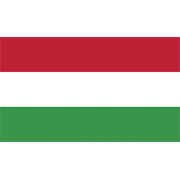Fiscal subject related
The data of the cash registers is accessed by the NAV online with a direct query, which requires an online data connection. To do this, the operator must conclude a subscriber contract with a communications service provider, who can provide the necessary data connection for the provision of data to the cash register. If the communications service provider suspends or restricts the data connection service provided to the cash register operator, the NAV blocks the cash register based on the signal of the communications service provider.
The NAV does not examine the reasons for which the service has been suspended or restricted (e.g. fee debt, non-compliance with other contractual obligations, etc.), this is exclusively the subject of a contractual relationship between the operator and the service provider, which is not within the competence of the NAV. If the communications service provider notifies the NAV that it is suspending or restricting the service in the case of a cash register, the NAV automatically blocks the cash register.
How do you know if NAV has blocked the cash register? There are a few ways to be certain that NAV has created this blockage, and they are:
- The cash register prints a technical document:
When blocking, the NAV instructs the cash register to print a so-called technical information document. The printed document says that NAV blocked the cash register. The cash register prints the information document automatically after the first day's closing after receiving the print instruction.
2. NAV sends an information letter to the operator's storage space
In all cases, the NAV also sends an information letter about blocking to the storage space of the cash register operator (KÜNY-hosting or Company Gate). The information letter contains the AP number of the blocked cash register, the reason for the blocking, and more details about the blocking.
Other news from Hungary
New webinar was uploaded: Recorded webinar: Approaching Hungary’s New E-Cash Register Era
 Hungary
Author: Tara Nedeljković and Ištvan Božoki
Hungary
Author: Tara Nedeljković and Ištvan Božoki
On December 19 2025, Fiscal Solutions organized a free webinar on the topic „Approaching Hungary’s New E-Cash Register Era“ The webinar was held by Tara Nedeljković, Team Lead of Legal Consultants at Fiscal Solutions, and Ištvan Božoki, Technical Consultant at Fiscal Solutions. Read more
Subscribe to get access to the latest news, documents, webinars and educations.
Already subscriber? Login


New event was created: Reminder - Join our free webinar: Approaching Hungary’s New E-Cash Register Era
 Hungary
Author: Tara Nedeljković and Ištvan Božoki
Hungary
Author: Tara Nedeljković and Ištvan Božoki
Step into this in-depth webinar designed for businesses and retailers operating in, or planning to enter the Hungarian market. You’ll discover what the new generation of e-cash registers is expected to introduce, along with the practical implications these changes may have on daily operations, technology planning, and customer interaction as well. 📅 18 December ⏰ 3 PM (CET) What we&rsquo... Read more



E--receipt requirements in Hungary – e-Cash registers in focus
 Hungary
Author: Tara Nedeljković
Hungary
Author: Tara Nedeljković
Recent legislative changes aim to replace mandatory paper receipts with regulated e-receipts, supporting NAV’s broader digitalization strategy while ensuring data security and limited tax-authority visibility. E-receipts must be generated by compliant devices, encrypted, optionally printed only on request, and may be linked to customer services such as loyalty programs only with explicit consent.... Read more



New event was created: Join our free webinar: Approaching Hungary’s New E-Cash Register Era
 Hungary
Author: Tara Nedeljković and Ištvan Božoki
Hungary
Author: Tara Nedeljković and Ištvan Božoki
Step into this in-depth webinar designed for businesses and retailers operating in, or planning to enter the Hungarian market. You’ll discover what the new generation of e-Cash registers is expected to introduce, along with the practical implications these changes may have on daily operations, technology planning, and customer interaction as well. 📅 18 December ⏰ 3 PM (CET) What we&rsquo... Read more



Choosing the Right Printer for the NAV e-Cash Register App in Hungary
 Hungary
Author: Tara Nedeljković
Hungary
Author: Tara Nedeljković
The NAV e-Cash Register app in Hungary supports a wide range of portable printers, but users should choose a device that meets the system’s technical expectations for clean and reliable receipt printing. Read more
Subscribe to get access to the latest news, documents, webinars and educations.
Already subscriber? Login


NAV Issues Detailed Guidance on Licensing Procedures for E-Cash Registers and Customer Apps
 Hungary
Author: Tara Nedeljković
Hungary
Author: Tara Nedeljković
NAV has published a detailed Notice explaining how distributors must apply for and obtain permits to market e-cash registers and customer applications under Decree 8/2025. Let’s explore this further. Read more
Subscribe to get access to the latest news, documents, webinars and educations.
Already subscriber? Login


Hungarian HAV Published E-Cash Register Testing Details
 Hungary
Author: Tara Nedeljković
Hungary
Author: Tara Nedeljković
Hungary’s new e-cash register framework, based on the 8/2025 (III.31.) Ministry of Finance Regulation, introduces strict technical certification rules and NAV-supervised type testing to ensure secure digital receipt issuance and data transmission. Read more
Subscribe to get access to the latest news, documents, webinars and educations.
Already subscriber? Login

